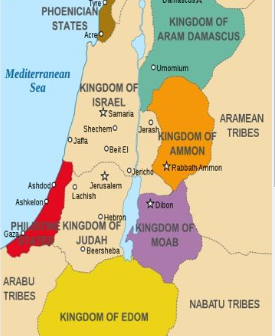Ahaz inherited a political situation in which Israel and Judah were longstanding enemies. Hearing the news of the alliance between Israel and Syria/Aram "the heart of the king and heart of the people trembled, as the trees of the forest tremble in the wind." (Is. 7:2) Moreover, the text does not speak of an anti-Assyria coalition that Judah was invited to join. It states:
In the days of Ahaz... [the] king of Aram and [the] king of Israel went
up to attack Jerusalem, but they were not able to conquer it. (7:1)
The roots of this problem go back to the time of Ahaz' grandfather and great-grandfather, Uzziah and Amaziah, respectively. In fact it was an unnamed prophet of God who urged Ahaz' ancestor to break with Israel/Ephraim:
7 A man of God came to him [Amaziah] and said: “O king, let not the
army of Israel go with you, for the Lord is not with Israel—with any
Ephraimite... 10 Amaziah then disbanded the troops that had come to
him from Ephraim, and sent them home. But they became furiously angry
with Judah, and returned home blazing with anger.
The New World Encyclopedia summarizes:
Although Amaziah was able to subdue the land of Edom, he was
again condemned by the prophets when, as Edom's lord, he honored the
Edomite deities. Hard feelings between Israel and Judah (2 Chron. 17-19) led to Amaziah
making war against the north, leading to a disastrous defeat in which
Jerusalem was sacked. He died years later at Lachish as a result of a
conspiracy which placed his son, Uzziah on the throne in Jerusalem.
Ahaz' father, Jotham, was co-regent with King Uzziah for 15 years. Jotham generally cooperated with the priests of the Jerusalem Temple, who were opposed to reconciling with the northern kingdom of Israel as long as that nation supported the rival priesthood and temples at Bethel and Dan. So 2 Kings 15:34 says of Jotham: "He did what was right in the Lord’s sight, just as his father Uzziah had done." Jotham made war successfully against the Ammonites: "He fought with the king of the Ammonites and conquered them." (2 Chron. 27)

Judah's northern and eastward victories against Edom and Ammon under Ahaz' ancestors were key factors in Israel's alliance with Syria, as they both saw Judah's increasing power as a threat. Nor did the priests and prophets of Judah encourage a coalition between Israel and Judah.
Military enmity between Israel and Judah was already longstanding when Ahaz came to power. Israel and Syria were Judah's military enemies, and he was continuing the existing political policy of his recent ancestors. Although the Bible disapproves of his religious policy (2 Kgs. 2), there is no indication that the prophets and priests were opposed to his stance with regard to the northern alliance. Indeed, the famous "Immanuel prophecy" given to Ahaz by the prophet Isaiah assured him that "before the child (Immanuel) learns to reject evil and choose good, the land of those two kings whom you dread (Israel and Syria) shall be deserted." (Is. 7:16)
